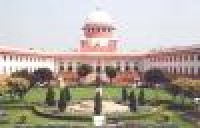Appointing judges

You don’t say!
Darius Nakhoonwala
Nearly a half century ago, a learned Chief Justice of India, pointed out in passing that while the judiciary was required to uphold existing laws, the executive was required from time to time and for perfectly good reasons to overlook them. This, he said, created a friction between the two.
Since this is true of all democracies that practise separation of powers, over the last 600 years the Executive in most countries has tried its best to ‘pack’ the judiciary with friendly judges. In the 1970s, Indira Gandhi had even talked about a “committed” judiciary.
After a series of skirmishes over fifteen years, the government in 1993 finally allowed the judiciary to appoint its own brethren. But that led to problems of opacity because of inadequate oversight of the ‘Collegium’ process.
Now a new law has been passed by Parliament that seeks to restore the balance between either the government or the judiciary alone appointing judges. Henceforth, there will be better checks and balances – or the so the makers of the new law say.
Not everyone is convinced. In fact everyone was full of doubts if the new system was an improvement.
The Times of India commented that although “It’s just as well that Congress pointed out a major flaw in the appointment process... The original legislation stated that if the President rejected a candidate, all six members of the (appointing) committee would have to unanimously endorse the judge for him to make the grade. Congress pointed out, rightly, that “the government could go on casting its veto till it got a desirable candidate. To assuage this concern, the “unanimous” provision has been dropped...”
The Indian Express had even more doubts. “...the government must now convince the Supreme Court that it (the new law) adheres to the basic structure of the Constitution.” It also said that the “Law Minister... has not offered a convincing explanation of the criteria for selecting these two (eminent) personalities (to be members of the selection committee). It is also unclear whether they will be appointed by consensus or majority. The role of “outsiders” is significant because the bill allows two commission members to veto a candidate’s appointment. An eminent member favoured by the government could well toe the line of the law minister. As a result, judicial primacy in appointments could be seriously threatened. Equally, the two-member veto rule ensures that the government cannot force a candidate on the judiciary. But it could result in a race to the bottom, where the least common denominator is used to pick judges whose candidature is acceptable both to the executive and the judiciary. This NJAC does not, unfortunately, assure a better system. It simply replaces an opaque collegium with another institution whose selection process may turn out to be non-transparent.”
The Hindu conceded that “...the time has come to replace the opaque collegium system with a transparent mechanism” but wondered if “any injury has been caused to the judicial limb” It then voiced the same concern as the Express. “However, any two members can veto any decision. While the veto could act as a restraint on a decision being pushed through by one bloc, it could also be seen as undermining the judicial members' opinion. Also, the CJI can be outvoted by the political class when it comes to choosing the ‘eminent persons’...Several significant aspects have been left to regulations to be framed by the Commission. Giving the power to amend these regulations to a panel that will itself keep changing from time to time instead of being cast in law may undermine judicial independence, as the norms could be tweaked for reasons of expediency. And it hardly needs to be emphasised that the independence of the judiciary is part of the basic structure of the Constitution.”
The Telegraph after noting that the change was required pointed out that “the Communist Party of India (Marxist) has warned the government that the constitutional amendment bill...needs to... acquire the agreement of half the states...Else it can be struck down in court. Perhaps haste is not such a good thing in a matter of such seriousness.” The rest of the edit, as has become the norm for Telegraph’s editorials, was offhand comment.
Pioneer took a political view of the whole thing. “...the BJP-led NDA Government has scored a major political victory. It is not an easy task for the ruling coalition to get a Constitutional Amendment, especially in the first Session of Parliament...”






